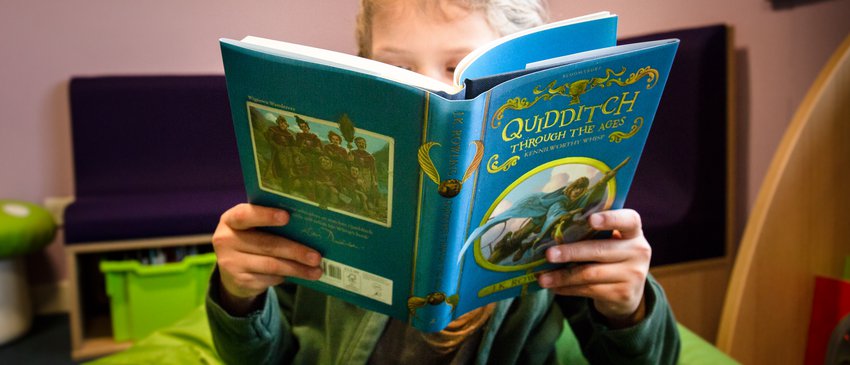Reading

Our research into reading explores reading enjoyment, reading habits and reading motivation. It highlights how these have changed over time and how they are impacted by sociodemographic background, access to books and the home environment. Our Annual Literacy Survey has been tracking changes in enjoyment, attitudes to and behaviours in reading since 2005 and is the biggest study of its kind in the world.
We also explore book ownership, library provision and other issues around access to reading. Find out more.
Key statistics in reading (2023 findings)
- Just 2 in 5 (43.4%) children and young people aged 8 to 18 said they enjoyed reading in 2023. This is the lowest level since we first asked the question in 2005.
- Fewer than 3 in 10 (28.0%) children and young people aged 8 to 18 said that they read daily, matching levels seen in 2022.
- Half (52.9%) of 8 to 18-year-olds told us they had been encouraged to read by their parents/carers.
Key statistics in book ownership (2023 findings)
- In 2023, 1 in 12 (8.6%) children and young people aged 5 to 18 said that they did not have a book of their own at home, while over 9 in 10 (91.4%) children and young people said that they did.
- 1 in 8 (12.4%) 8- to 18-year-olds who received free school meals (FSMs) told us that they did not have a book of their own.
- This is double the percentage of their peers who did not receive FSMs (12.4% vs 5.8%).
- The percentage-point (pp) gap in book ownership between children and young people who receive FSMs and their peers who do not (6.6 pp) is now at its largest in a decade.
Latest research on reading
-
This report outlines findings from our 2023 Annual Literacy Survey, in which we recorded the lowest level of reading enjoyment since 2005.Learn more about Children and young people's reading in 2023.
-
Based on data from our 2023 Annual Literacy Survey, this report tracks book ownership in children and young people in the UK.Learn more about Book ownership in 2023.
-
This Empathy Day it is worth considering how reading provides opportunities to explore, learn about and sometimes be immersed in the lives of others.Learn more about Empathy Day 2023: Reading for pleasure and empathy.
-
1 in 4 (26.7%) children and young people said they read poetry in their free time at least once a month in 2023.Learn more about Children and young people's engagement with poetry in 2023.
What else we know about reading
- Not reading at the expected level puts children at an increased risk of experiencing unemployment and poor health as adults. Find out more.
- Technology can provide a route into reading for traditionally reluctant less engaged readers. Find out more.
- Strong reading skills have been shown to improve children’s academic attainment across a range of subjects, including English, maths and science. Find out more.

Our work on reading
-
Reading for enjoyment is key to improving literacy skills. The Young Readers Programme runs fun events where children can choose books to take home and keep.Learn more about Young Readers Programme.
-
Each term we run exciting challenges and competitions available to all UK schools to encourage reading for pleasure, develop reading stamina and increase reading diversity.Learn more about Competitions and Reading Champions Challenges.
-
Engage with research and develop sustainable strategies to embed a culture of reading in your school and classroom.Learn more about Reading for Pleasure CPD.






